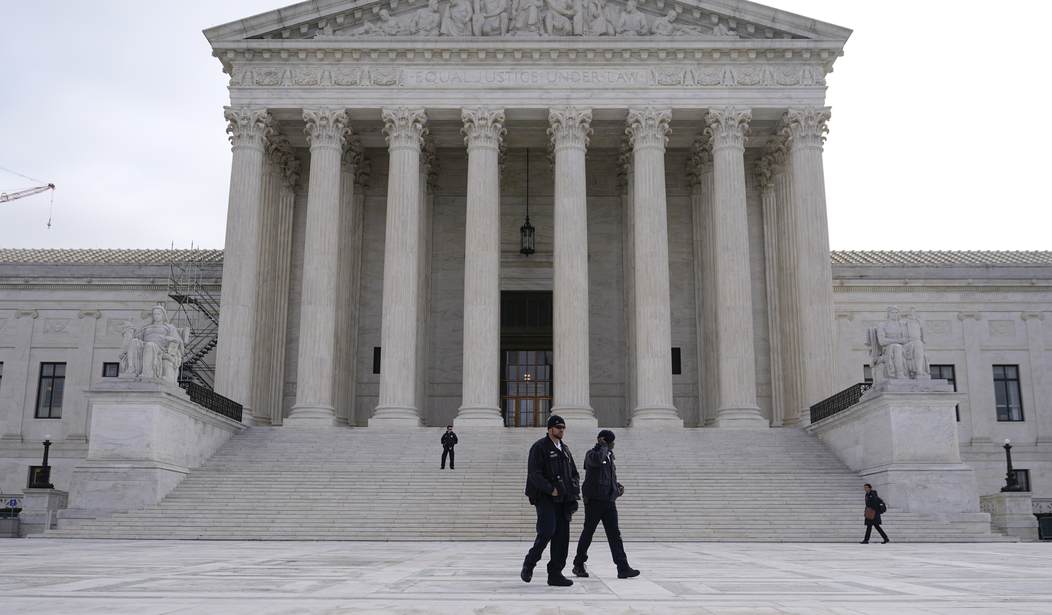“It is impossible to introduce into society a greater change and a greater evil than this: the conversion of the law into an instrument of plunder.” – Frédéric Bastiat
Over the past few months, I have been writing quite a bit about the flagrant abuses the government has engaged in using eminent domain. The more I learn about it, the more I oppose it.
While most people have a rudimentary understanding of what eminent domain is, I have found that they do not know the history behind the practice and how it has morphed into something even more tyrannical than the founders intended. In this piece, I’m seeking to give a more in-depth explanation of what eminent domain is, where it comes from, how it has been used, and why, ultimately, it should be abolished.
Eminent domain is a power granted to the government by the Constitution that allows it to seize private property for public use, provided that just compensation is given to the owner. This power has been utilized throughout history for various purposes, including the construction of public facilities, such as roads, schools, and government buildings.
In the United States, the concept of eminent domain was enshrined in the Fifth Amendment to the Constitution, which states that “private property [shall not] be taken for public use, without just compensation.” However, as is usually the case with governments, the Supreme Court’s interpretation of the Fifth Amendment has evolved over time, with the Court gradually granting more power to the government to acquire private property for public use.
A significant case in the history of eminent domain is the 2005 Supreme Court case Kelo v. City of New London. The Court’s decision in Kelo expanded the government’s power of eminent domain, allowing property to be taken for private development projects that were deemed to serve a public purpose. Originally, eminent domain was meant for infrastructure to foster greater mobility and commerce. But this ruling opened the door for the state to use the process for economic interests which favors major corporations at the expense of private property owners.
The Kelo v. City of New London case began in 1998 when the pharmaceutical company Pfizer announced plans to build a $300 million research facility in New London, Connecticut. In response, the city put forth a plan to redevelop the Fort Trumbull neighborhood, which was located adjacent to the proposed Pfizer facility. The plan involved the use of eminent domain to acquire the properties in the area, which would then be transferred to a private developer, the New London Development Corporation (NLDC). The NLDC would develop the area for private use, including residential and commercial properties, in addition to a hotel, a conference center, and a marina.
Many of the property owners in the Fort Trumbull neighborhood refused to sell their properties, arguing that the proposed use of eminent domain was not for a public use, but rather for the benefit of a private entity. Among the property owners was Susette Kelo, who had purchased a pink Victorian-style home in the neighborhood and spent considerable time and money renovating it. Kelo and several other property owners sued the city, arguing that the use of eminent domain to take their properties violated the Fifth Amendment of the Constitution, which requires that property can only be taken for a public use and with just compensation.
The case made its way to the Supreme Court, which heard the case in 2004. In a 5-4 decision issued in 2005, the Supreme Court ruled in favor of the city, holding that the use of eminent domain for economic development purposes was constitutional. The majority opinion, written by Justice John Paul Stevens, stated that the city’s plan qualified as a public use, as it was aimed at promoting economic development and creating jobs. The opinion further noted that the decision to use eminent domain was a matter of legislative judgment, and that the Court would defer to the city’s determination that the proposed plan was in the public interest.
The decision was met with widespread criticism, with opponents arguing that it represented a significant expansion of the government’s power of eminent domain and a violation of property rights. Some argued that the decision effectively allowed the government to take property from one private owner and give it to another, with the public benefit being a mere afterthought. The decision also led to a wave of reform efforts at the state level, with many states passing laws that restricted the use of eminent domain for economic development purposes.
There are several other examples of local, state, and federal governments using eminent domain to seize property from private citizens. One of the most well-known is the Atlantic Yards project, which is commonly cited as one of the more appalling cases in which the government robbed citizens of their property.
The Atlantic Yards project was a controversial mixed-use development project that was proposed for the neighborhood of Prospect Heights in Brooklyn, New York. The project, which was first announced in 2003, was led by the developer Forest City Ratner Companies and included plans for a new sports arena for the Brooklyn Nets basketball team, as well as residential and commercial buildings.
The project was heavily criticized for its use of eminent domain to acquire private property for the development. The government claimed that the project was necessary for the public good, and would bring jobs and economic growth to the area, but many residents and small business owners in the community disagreed.
They argued that the use of eminent domain was unfair and violated their property rights, and that the project would have a negative impact on the community, including increased traffic and noise, higher rents, and the displacement of long-time residents and small businesses. Despite the opposition, the government approved the use of eminent domain for the project in 2006, and many property owners were forced to sell their land or be evicted.
Those in favor of eminent domain argue that it is necessary for the greater public good. The ability of the government to take property for public use is seen as essential for the construction of infrastructure and other public projects. Eminent domain is also used to facilitate economic development, which can benefit the community as a whole through increased employment opportunities and tax revenue. Proponents also argue that just compensation is provided to property owners, ensuring that they are not unfairly disadvantaged.
However, the truth is far different in many cases.
Opponents of eminent domain argue that it is often abused by the government and used to benefit private interests rather than the public good. In many cases, the government uses eminent domain to take property for private use, such as a shopping mall or luxury condominiums, rather than for public use. This can be seen as a violation of property rights and a form of corporate welfare.
Critics also point out that the process of determining just compensation is often unfair and that property owners may not receive the true market value of their property. Even when just compensation is provided to property owners, critics argue that the process of determining fair market value can be arbitrary and unfair. In some cases, the state undervalues the property or offer less compensation than what the property is truly worth, leaving property owners at a disadvantage.
Both of these issues can be seen in a current case in which the state of Tennessee is using eminent domain to take property from farmers to build a roadway to a newly-built Ford electric truck plant.
Eminent domain is a policy that is easy to abuse. Many have faced a situation in which the government takes their property, giving them only a pittance in return for the theft. It has caused numerous problems for people who never get the opportunity to have their voices heard. Indeed, the fact that these cases don’t tend to get much media attention means most people do not realize how often it happens.
The bottom line is that, as economist Frédéric Bastiat says, the law should never be wielded as an “instrument of plunder.” Unfortunately, this is precisely what has happened with the use of eminent domain in the United States. This will continue to be the case until we the people decide to do something about it.













